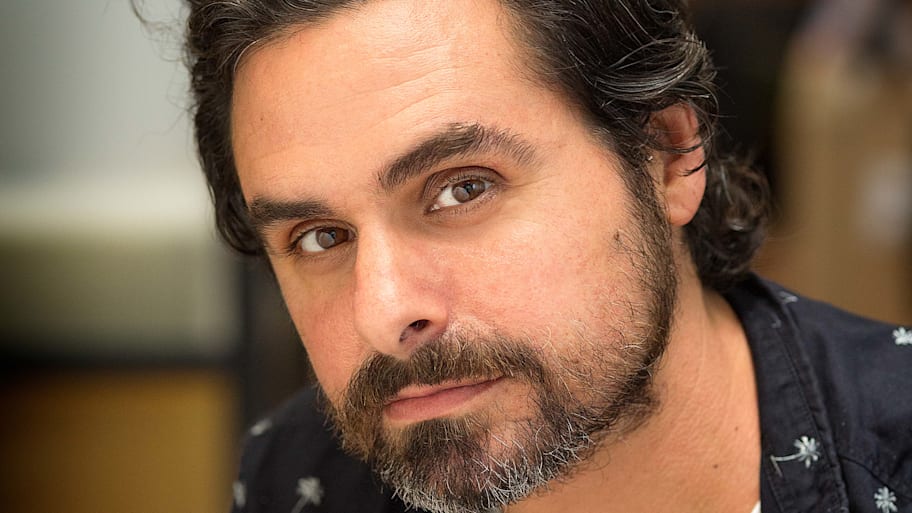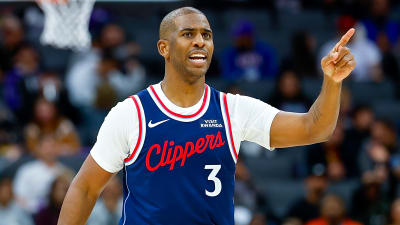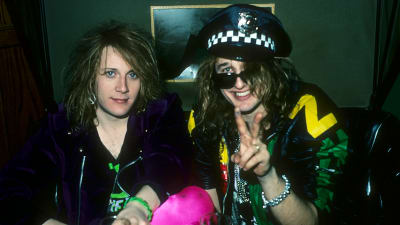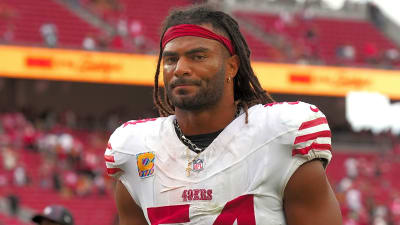
Earnhardt, the new four-part docuseries about the personal life, legacy, and racing career of seven-time NASCAR Cup Series champion Dale Earnhardt, is officially available (at least the first two episodes) on Prime Video.
And at its core, the story is just like... The Godfather?
Joshua Altman, the Director of the docuseries, spoke with Joseph Srigley of Racing America On SI about the comparison and several other items, including the creative choices and inspirations that led to the finished product that viewers will see on-screen.

Several of the people tasked with putting this docuseries together, including Altman himself, didn't come into the project with an immense background in NASCAR. Although unconventional, this allowed the story to take form in a new light, one focused on family instead of racing.
“When we were pitching it, one of the things that we were talking about was The Godfather, [which] can very much be looked at as a mob story, but really, it’s the story of a family that just happened to be in the mob. We approached this similarly – it’s about a family, they just all happen to be NASCAR drivers.”
While the Earnhardt family was the main subject of the docuseries, they also played a major role in putting it together -- through the insight of Dale Earnhardt, Jr. and Kelley Earnhardt-Miller, two of the children of the late Dale Earnhardt.
“They were incredible, the two of them, both in terms of their trust that they put into us – I can’t stress that enough, that documentaries are really built on that, and they were very open,” Altman said of Dale and Kelley. “I think we came in with the expectation of that, having seen interviews of them.”
For Altman, Dale and Kelley and their perspective was a main point of his interest in the project.
“I started watching Dale Jr. and immediately was blown away by just how honest and candid he was, and his ability to tap into people’s emotions. As we started watching stuff with Kelley and meeting them, that became apparent, they really opened themselves up in a lot of ways.”
“[Dale Earnhardt, Jr.] sat down for us sometimes for four hours in a stretch, just sort of unpacking his own story, but also helping us make sense of everything, coming in as newbies, trying to really understand how everything happened.”
That wealth of first-hand knowledge came in handy for the filmmakers, as viewers will be able to tell in watching the docuseries. A significant portion of the film's interview content comes from the two members of the Earnhardt family, and their older brother, Kerry Earnhardt.
All of that information, which coupled with the archives from Dirty Mo Media, NASCAR, and the personal collections of Kelley and Dale (which Altman says included literal suitcases filled with irreplaceable books) made the story not only accurate, but also gave it a personal touch.
That personal touch was an important (and intentional) part of the docuseries. Early on, a creative decision was made: Instead of speaking to journalists about the story, who are likely to bring a more information-based approach, the filmmakers would instead interview people with a personal connection to the story.
The emotions may not be as fresh and raw as they once were, now that almost 25 years has passed, but there's still a certain balance that needs to be achieved when attempting to acquire information for a story of this nature.
“I think in doing that obviously presents its challenges just in terms of having people go back there and having them relive things, I think a part of that is not really pressing everybody and being willing to open whichever place they’re willing to go and the depth that they’re willing to talk about something,” Altman said. “But I think enough time had passed, and I think they all have sort of spoken about this to some degree, that they were willing to open up and go there.”
“For us, we come in with sort of an idea of this story of how it’s going to play out, but everything gets reshaped in the edit. We have an incredible team of editors, PE’s storytellers, producers, and all around that are helping to dig out these pieces and put them together, and I think in a lot of ways we let the interviews and the archive that we find drive that.”
The fourth and final episode of the series focuses specifically on the 2001 DAYTONA 500, and the immediate aftermath of Earnhardt's death. For the most part, apart from the potential small preview of the fabled race that would have come at the end of the third episode, that was always going to be the plan.
“I think where to end it was definitely tricky, and when you’re trying to get this thing down to an hour you realize that we weren’t going to be doing it justice to try and cram 17 years of life into an hour, while also giving the race the justice that it needed,” Altman said.
“I felt like the race had never felt like in previous iterations of things we had seen – again, as not NASCAR fans or outsiders watching content that had been made – it had never really been lived in,” he added. “We wanted to make sure that we created an experience that really, sort of, all of the setups had paid off at this point, and you could just experience that as it was.”
That's not to say there wasn't more of the story explored by the filmmakers. In fact, Altman says the original plan was for the final episode to extend well beyond 2001 -- and include things like Dale Earnhardt, Jr.'s racing career, the demise of Dale Earnhardt, Inc., and Kelley becoming one of NASCAR's top businesspeople.
What they came to find out while exploring these moments, though, was that anything not directly related to Dale Earnhardt, felt like they were going off on a tangent, which would take away from the focal point of the series.
Asked about the possibility of a spin-off or continuation to this initial project, Altman (with a notable smile) said: “100% there is another sort of spin-off or continued series about, let alone Dale Jr. and his career and the concussions he went through and surviving that and finding Amy, his wife. There are so many interviews with people like that, that were incredible that opened themselves that seemed as though they had a place in our series.”
“Ultimately, realized they didn’t [have a place], but there is certainly a whole other series or film that you can make about all of that.”
Throughout the process of learning about the full Dale Earnhardt story, Altman, and those who came into the project without intricate knowledge of the NASCAR legend, were amazed at the unique nature of the driver called “The Intimidator” and just how strong his presence was, both inside and outside of the NASCAR world.
"We came to understand quickly that Dale was an American icon on the levels of Babe Ruth, Michael Jordan, even we were talking about Elvis, that he was a cultural icon, meant to be seen as that, but he really wasn't in a lot of ways outside of NASCAR."Joshua Altman, Director of 'Earnhardt'
"Within NASCAR, I don't think any sport has somebody like him, when we go to these events, his number is still on bumper stickers, his flag is still flown, that's unparalleled. I don't know any other athlete in a sport that still has that resinance, so in a lot of ways, he's probably one-of-a-kind."
The first and second episodes of 'Earnhardt' are now available on Prime Video. The second slate of episodes will be released on the platform one week later, on Thursday, May 29. Prime Video is also gearing up for its first-ever NASCAR Cup Series broadcast, which will take place Sunday, May 25 for the Coca-Cola 600 at Charlotte Motor Speedway.
Recommended Articles:
More must-reads:
- Former NASCAR driver Michael Annett dies at 39
- Warriors bench a healthy Jonathan Kuminga in blowout vs. Bulls
- The 'SEC football champions since 1992' quiz
Breaking News
Trending News
Customize Your Newsletter
 +
+
Get the latest news and rumors, customized to your favorite sports and teams. Emailed daily. Always free!








